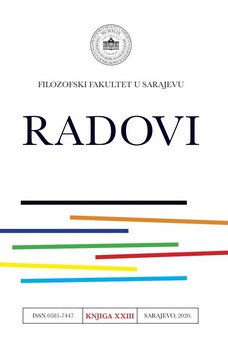HOW THE BOLOGNA PROCESS HAS CHANGED THE CLASSROOM
HOW THE BOLOGNA PROCESS HAS CHANGED THE CLASSROOM
Author(s): Tatjana R. MarjanovićSubject(s): Foreign languages learning, Higher Education , History of Education, Transformation Period (1990 - 2010), Present Times (2010 - today), Sociology of Education
Published by: Filozofski fakultet Univerziteta u Sarajevu
Keywords: the Bologna process; University of Banja Luka; Bosnia and Herzegovina;
Summary/Abstract: The Bologna process is generally described as a joint effort of European education policy makers and universities in creating a common higher education area in Europe aimed at increased student and staff mobility, as well as overall comparability and compatibility of higher education systems across Europe. The large-scale reforms have inspired and generated volumes of academic publications from a number of perspectives, e.g. economic, legal, political, and so forth. What seems to be lacking at this point is a more practical investigation into how the Bologna process has transformed the education systems of some of its less visible member countries such as Bosnia and Herzegovina. More specifically, the aim is to show how the reforms have affected what goes on in the classroom by comparing select aspects of studying in both pre-and post-Bologna times at one of the country’s universities. Examples have been given of courses taught and taken at the University of Banja Luka’s English Department pre-and post-Bologna to draw a parallel between some of the coursework and examination requirements now and then.
Journal: Radovi Filozofskog fakulteta u Sarajevu
- Issue Year: 23/2020
- Issue No: 1
- Page Range: 70-85
- Page Count: 16
- Language: English

